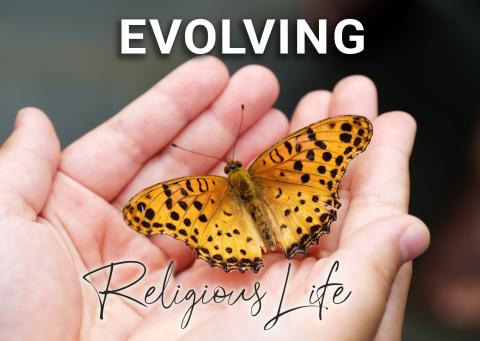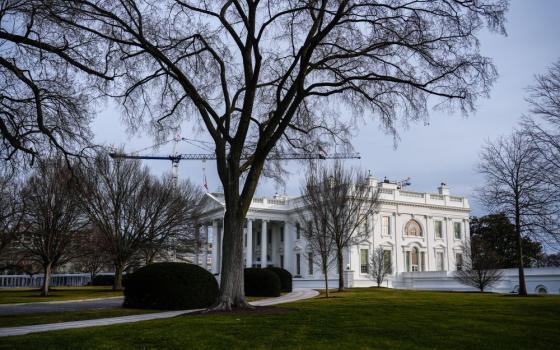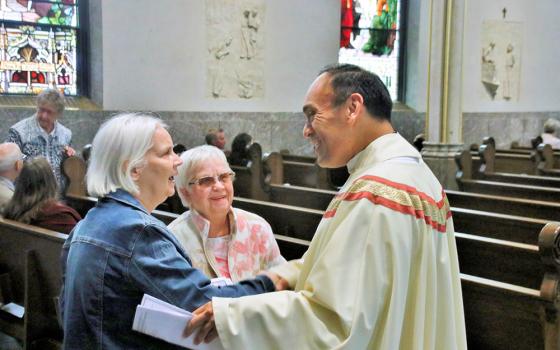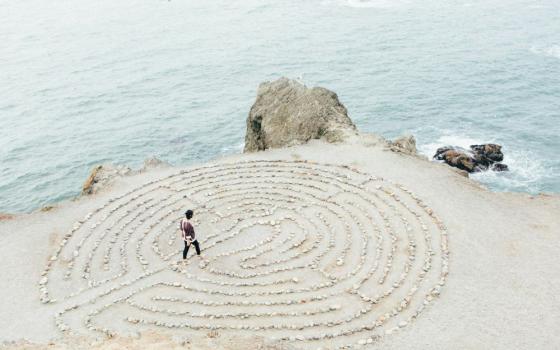!["¿Cómo pueden [las religiosas] discernir nuevos roles y desempeñar nuevas funciones a la luz de su número cada vez menor, envejecido y viviendo más en la periferia que en el centro de lo que está sucediendo?": Hna. Judith Schaeffer. (Foto: Unsplash/Florian Bernhardt)](/files/2023-12/florian-bernhardt-hES84VKM7PI-unsplash%20RESIZE.jpg)
"¿Cómo pueden [las religiosas] discernir nuevos roles y desempeñar nuevas funciones a la luz de su número cada vez menor, envejecido y viviendo más en la periferia que en el centro de lo que está sucediendo?": Hna. Judith Schaeffer. (Foto: Unsplash/Florian Bernhardt)
Many, if not most, women religious of today are experiencing agonizing loss, both personal and institutional. To all appearances, they have become relatively meaningless as individuals and as communities. They are aging as well as losing beloved companions and friends, both within their communities and among their families and friends.
Even sadder, they have been unable to inspire self-confident, mature women to join them, even on a trial basis.
Research suggests that the inability of most communities of women religious to attract new members has a socioeconomic basis: Laywomen can participate on their own in the ministries in which women religious have excelled for decades, if not centuries. They can teach, nurse and engage in social work. They can be at the forefront of significant peace and justice movements, such as elimination of the death penalty, solitary confinement, and human sex trafficking.
This explanation still challenges women religious, to be sure, but it also comforts them because it represents gains for laywomen. At this level, women religious can console themselves even as they grieve.

At another level, however, they are disillusioned. Since their foundations, their distinction within the Catholic Church as neither laity nor ordained clergy, but consecrated persons whose charisms were meaningful to the people of God, held true. They were respected, indeed admired.
Women religious must squarely face their fears of losing their precious sense of being distinct in the world and the church.
Today, that seems to be the case only in small societal or ecclesial "pockets." In general, others do not appear to value the way women religious choose to live.
They tried hard to remain relevant in the spirit of the 1962-65 Second Vatican Council. They made sincere and costly efforts to meet the needs of the times, those of the world as well as the church.
But, they ask themselves, did they really adjust their lifestyles as radically as they should have? Was it truly prudent for them to leave their respectable professions and give over their cherished institutions to the laity, sponsoring them while no longer owning or managing them?
Must they now redefine themselves at an even more foundational level? How can they discern new roles and perform new functions in the light of their dwindling numbers, aging and living more on the periphery than at the center of what is going on?
Do their charisms and traditions even permit their resolving the tension between needing to be included in humanity yet remaining distinct from others?
If they were to ask these questions of developmental psychology author Robert Kegan, he would say, "Yes." Referring to his revolutionary 1982 book, The Evolving Self: Problem and Process in Human Development, he would explain that they, like the rest of humanity, must cooperate with a process of human development designed to make them move from an institutional to an interindividual level of development. It is a must.
Women religious must evolve from having their charisms of poverty, chastity and obedience within a community setting to being poor, chaste, obedient and communal.
This process, Kegan would add, is the heart of a worldwide evolution. It requires that we stop defining ourselves by what we have done and focus on who we are: being rather than doing. And as Eckhart Tolle added in his 2005 text A New Earth: Awakening to Your Life's Purpose, no one is exempt. We must evolve or die.
Thus, women religious need to make the following attitudinal, cognitive and behavioral changes. They must deal with what is, rather than what they would like to be, let alone should be.
They must acknowledge and process unwanted realities like their depression and anger, their guilt feelings and shame. They must squarely face their fears of losing their precious sense of being distinct in the world and the church.
These changes will be possible only if women religious accept "the new normal" of being in transition rather than stable. They are being called to remain in a state of change rather than enjoy the homeostasis they have earned from all their work since Vatican II.
Furthermore, they must acknowledge their vulnerability to feeling assaulted not only from outside because others are rejecting them but also from inside because they are attacking themselves.
Advertisement
In sum, women religious must evolve from having their charisms of poverty, chastity and obedience within a community setting to being poor, chaste, obedient and communal. They must no longer grant themselves exceptions to what they need to be.
They must become poor in terms of material possessions, respect, distinction and honor.
They must become chaste in terms of loving those they have previously judged "not the proper objects of their love."
They must become obedient to all of creation in that they listen with truly reinventive minds to the voices of previously unknown or unvalued creatures.
They must become communal in ways that are radically inclusive.
Yes, women religious must move from a stage of development marked by relative certainty to one of tentativeness and hope of a fundamental breakthrough. They are to continue to experiment with reimagining the charisms of the foundresses and founders. They are to continue to let go of what was familiar and comfortable.
And they must do so with joyful spirits, ever ready to play on the playground of a God of abundance who is continually fostering more evolved levels of creatures who more closely resemble their Creator.
They can and will accomplish this, of course, with the prayers and support of the people of God.






